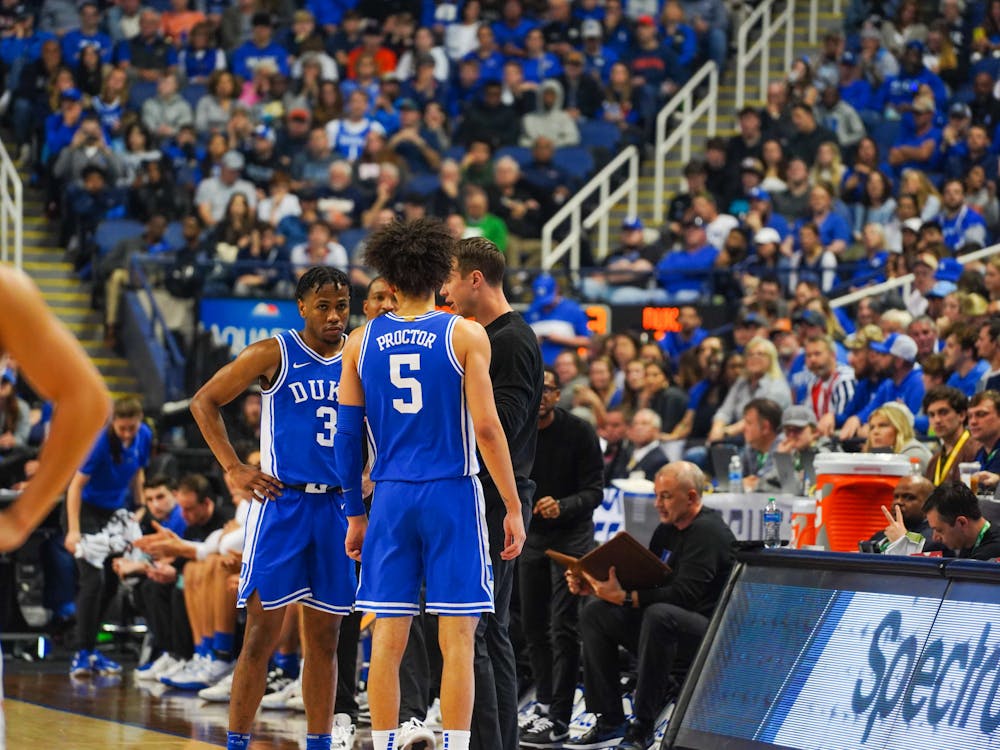With the first round of the NCAA tournament set to tip off Thursday, the Blue Zone breaks down each of the four regions, taking a look at all the possible Cinderella stories and heavyweights vying for a place in the Final Four in Houston. Check out our previews for the West, Midwest and East regions as well:
The No. 1 seed: Alabama Crimson Tide
For the first time in school history, Alabama is ranked as the No. 1 overall seed in the NCAA tournament. Head coach Nate Oats has turned this program around, qualifying for the tournament in three of his first four seasons as the team's coach. The Crimson Tide (29-5, 16-2 in the SEC) defeated Texas A&M 82-63 to win the conference tournament and have won seven out of their last eight contests. Alabama’s strength is its ability to run up and down the floor and score in bunches, as the Crimson Tide rank sixth in the country in scoring offense with 82.8 points per game. This team plays hard and has built an identity around playing at an extremely fast pace, ranking fourth in the country in possessions per game.
The Crimson Tide have arguably the best player in the country— freshman forward Brandon Miller. The Antioch, Tenn., native leads the SEC in scoring with 19.6 points per game, and is fourth in rebounds with 8.3 per game. Miller is an extremely difficult player to guard because at 6-foot-9, he shoots at a 40.1% clip from deep. Starting in the backcourt is Mark Sears and Jahvon Quinerly, both capable shooters and great facilitators as well. The main question for this team is whether the supporting cast can step up if Miller has an off night. In addition, the defense is suspect at times, giving up triple digits twice this season. However, the athletes on Alabama will make it a tough opponent for any team, and the Crimson Tide are a serious threat to cut down the nets in Houston.
The other contenders: Historically successful teams
The top four seeds in this region are capable teams who have had previous success in the NCAA tournament. They are all extremely talented and could certainly pose a challenge to Alabama moving forward.
Arizona is a year removed from being a No. 1-seed, and this team is a force to be reckoned with. The Pac-12 Champions score 83.1 points per game, good for fourth in the nation. The Wildcats are led by junior forward Azuolas Tubelis, who, like Miller, leads his conference in scoring with 19.8 points per game. Along with Alabama, Arizona avenged a regular-season finale loss in the conference championship game, as the Wildcats defeated UCLA 61-59 to win the Pac-12.
No. 3-seed Baylor emerged with an 11-7 record from a gauntlet of a conference slate in the Big 12. Head coach Scott Drew is experienced in the NCAA tournament, as the Bears won the 2021 national championship. However, that team was known for its elite defense, and currently, Baylor ranks 173rd in scoring defense.
While this region has its share of offensive juggernauts, the fourth-seed Cavaliers are bringing their signature brand of basketball to the table. This is an experienced group, including graduate guard Kihei Clark, who was a member of Virginia's 2019 championship team. The Cavaliers will be difficult to beat because they slow the game down, and should they face the Crimson Tide in the Sweet 16, the contrast of styles will make for an entertaining contest.
The potential Cinderella: Charleston
Charleston has momentum on its side, winning each of its past 10 contests. The Cougars have only lost three times all season, however, they are 0-1 in Quad I games. Nevertheless, the CAA champions have some impressive wins on their resume, including a 77-75 victory against Virginia Tech on Nov. 20.
The thing that makes this team scary is its ability to shoot from deep, and it lives and dies by the three. Charleston shoots the second-most 3-pointers in the entire country, averaging 30.2 attempts per game. San Diego State is a great team who boasts an elite defense, however, in a NCAA tournament game, anything can happen. If the Cougars get hot, watch out for them to upset the Aztecs and advance even further.
The regional narrative: How many upsets?
This is a unique year because of how wide open the tournament is, and the South region has the potential to be a bracket-buster. Will double-digit seeds, including N.C. State and Utah State, make a deep run, and how will the relatively young Alabama team face against experienced top teams including Arizona and Virginia? The uncertainty is what makes March so amazing, and the South is primed to be a wild region.
Get The Chronicle straight to your inbox
Sign up for our weekly newsletter. Cancel at any time.

Ranjan Jindal is a Trinity junior and sports editor of The Chronicle's 120th volume.

